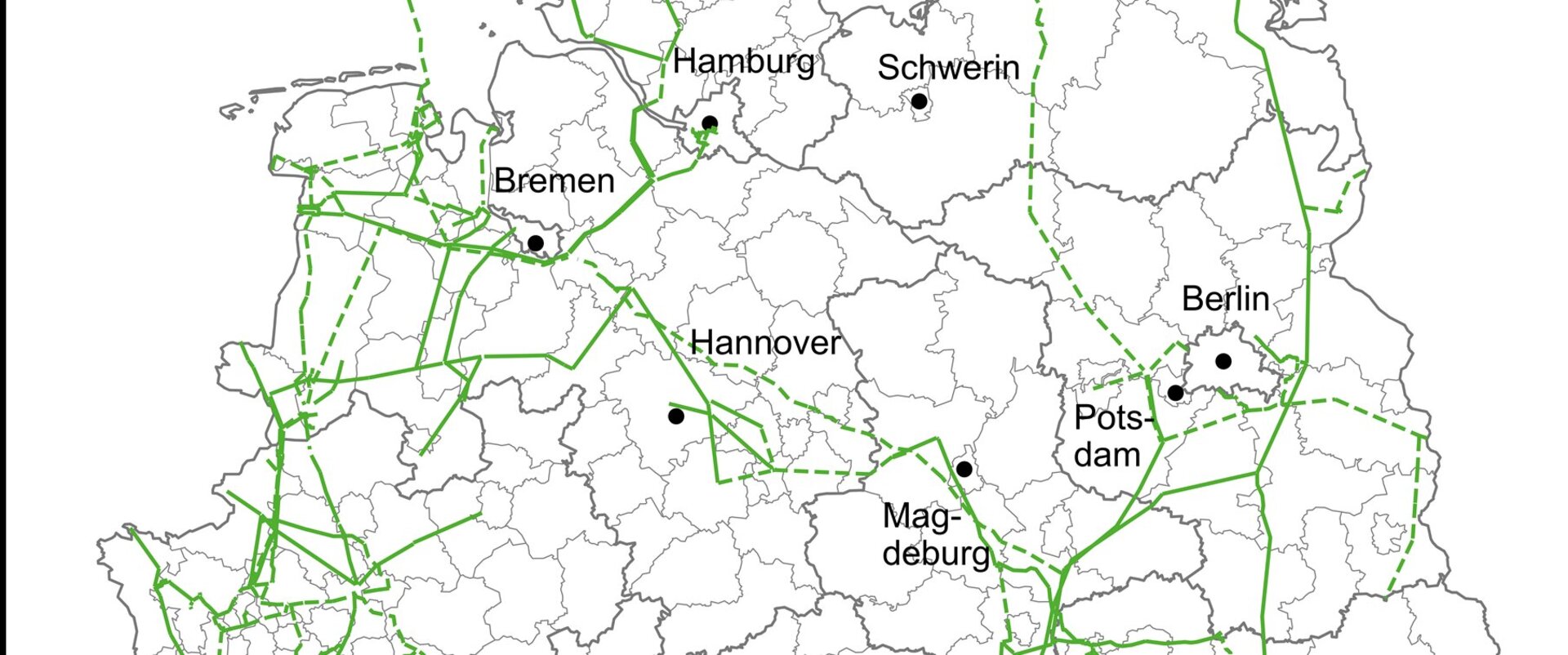Federal Ministry for Economic Affairs and Climate Action and FNB Gas present final draft of German hydrogen infrastructure.
Kassel / Berlin. Two projects of the Kassel-based transmission system operator GASCADE Gastransport GmbH are part of the draft of the German hydrogen core network. Both, the offshore project AquaDuctus, which GASCADE intends to implement in the North Sea, and the large-scale onshore project Flow – making hydrogen happen, which aims to transport hydrogen from the Baltic Sea coast to southern Germany, have been included in the hydrogen core network recently presented by Federal Minister Robert Habeck in Berlin.
"The finalisation of the draft hydrogen core network is an important milestone and we are delighted that our projects will support the hydrogen ramp-up in Germany," says GASCADE Managing Director Christoph von dem Bussche. The core network should provide significant capacities for hydrogen transportation by 2032.
"With our projects, we want to tap into the hydrogen potential of the North Sea and Baltic Sea in particular," emphasizes GASCADE Managing Director Ulrich Benterbusch. Flow – making hydrogen happen aims to provide the market with initial transport capacities as early as 2025, largely by converting the current natural gas infrastructure. "We are starting with the Lubmin site and later want to integrate the Baltic Sea region in order to bring hydrogen as far as Baden-Württemberg," says Benterbusch. The AquaDuctus hydrogen pipeline is to connect the first production sites for green hydrogen in the German North Sea by 2032 and become the backbone of a European interconnected system.






